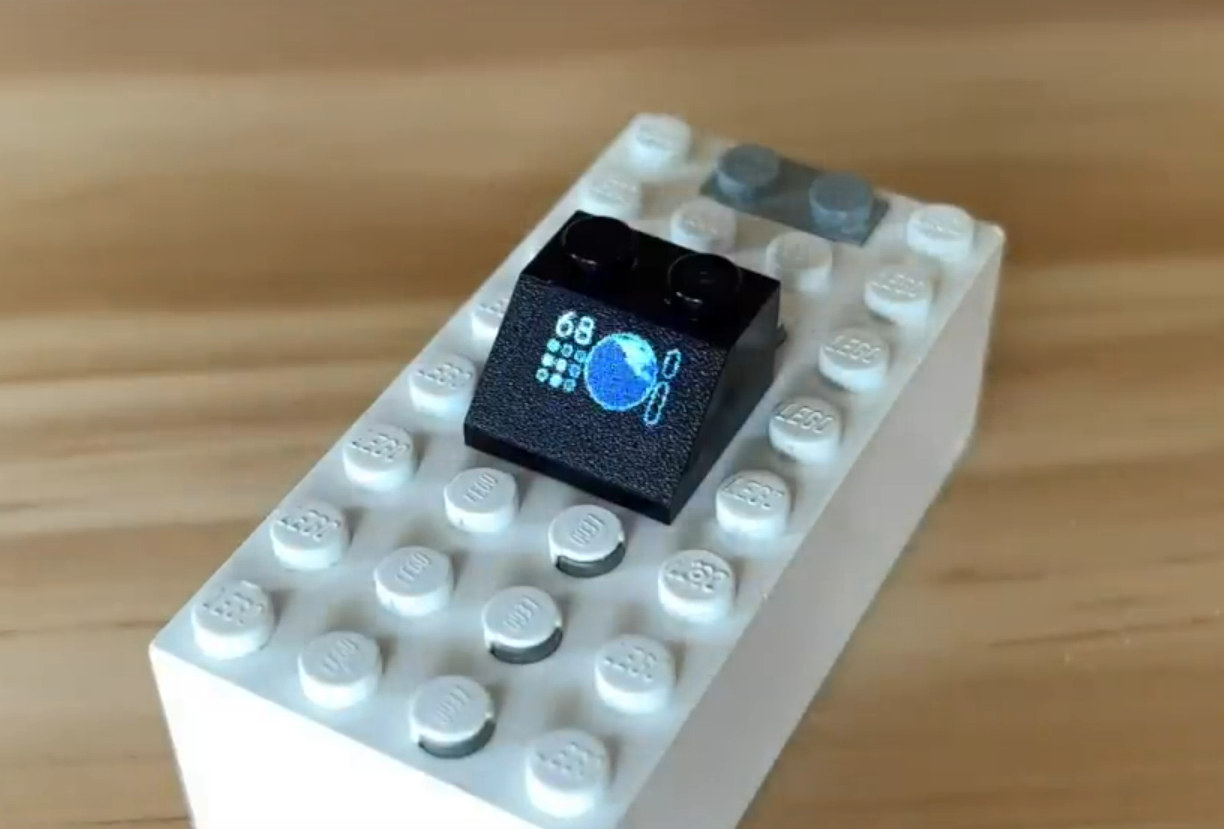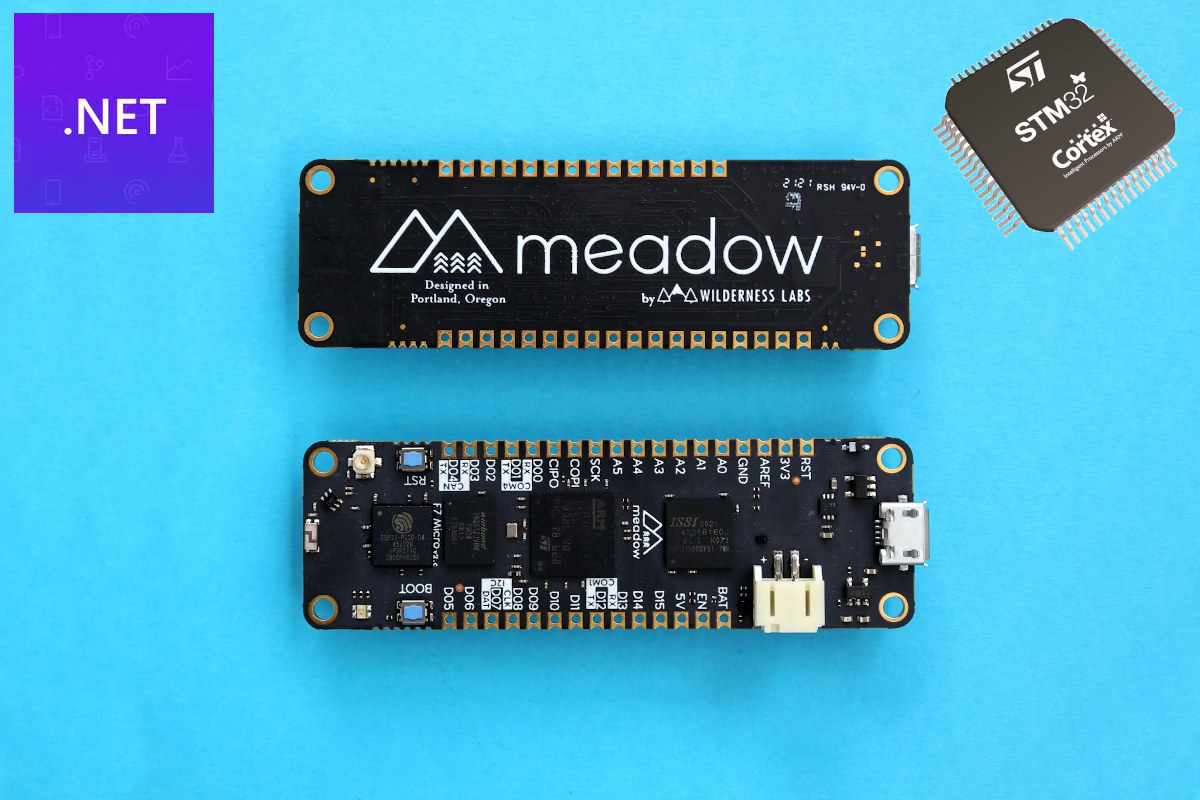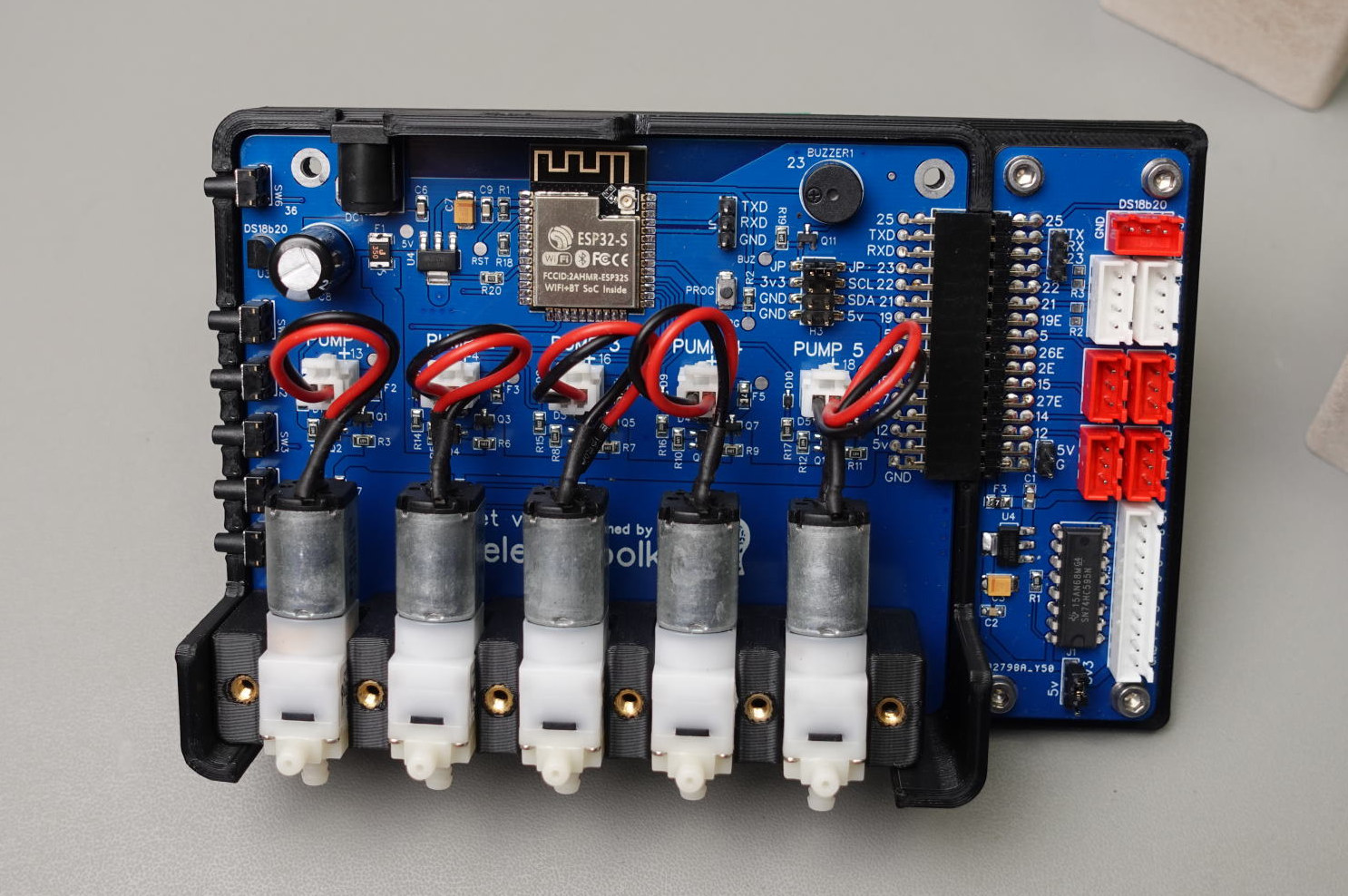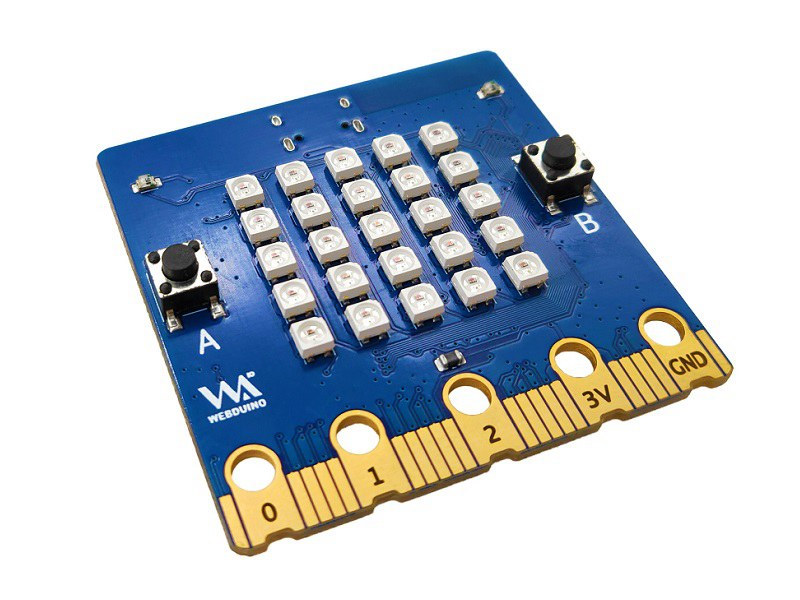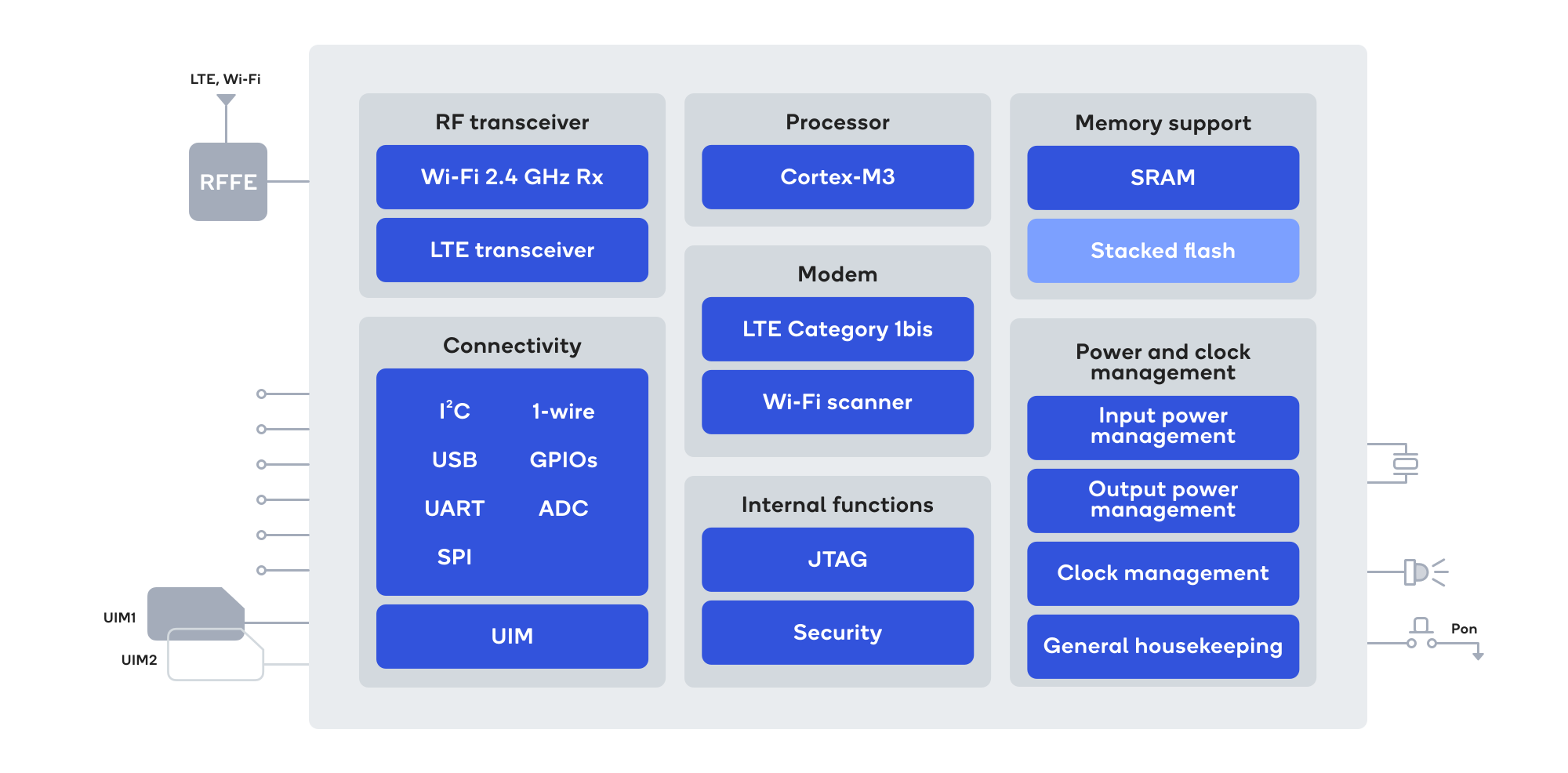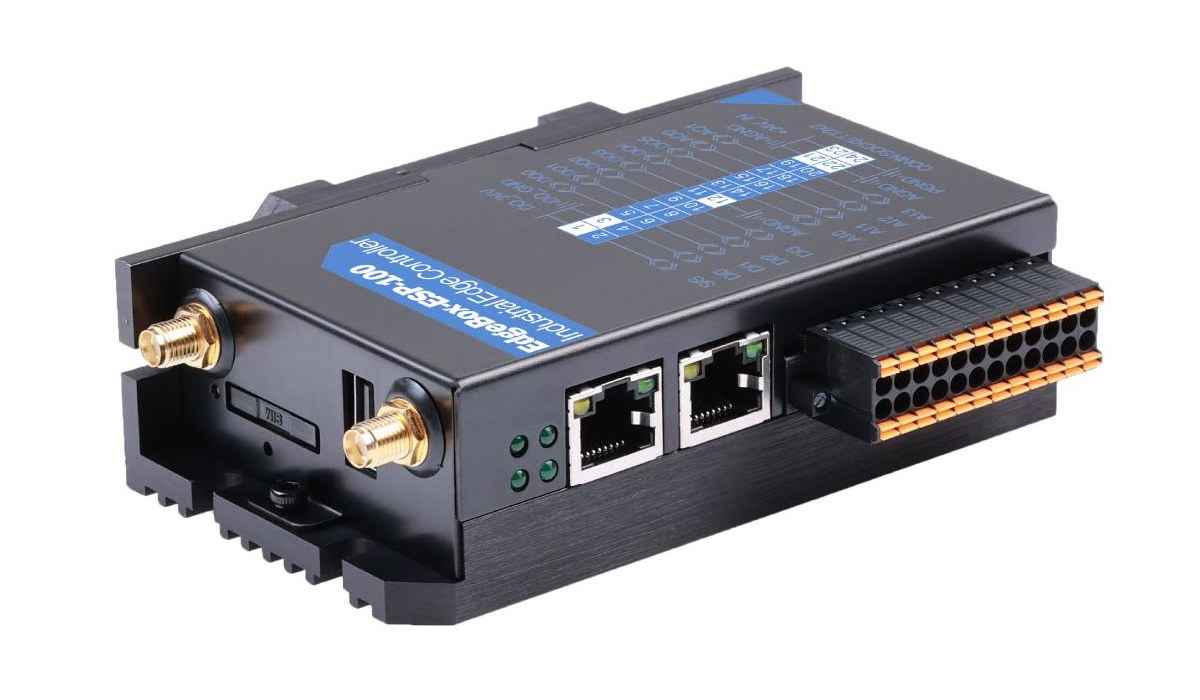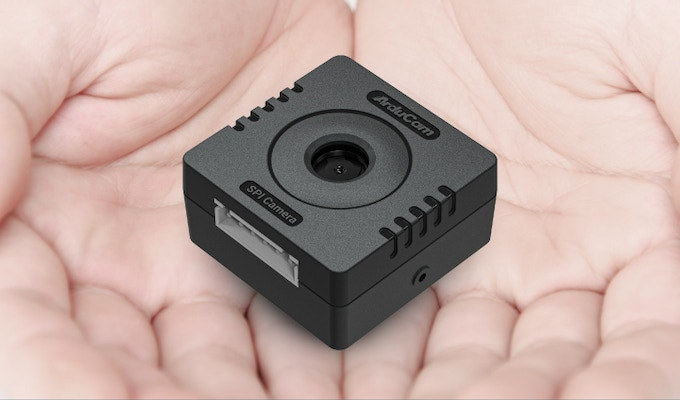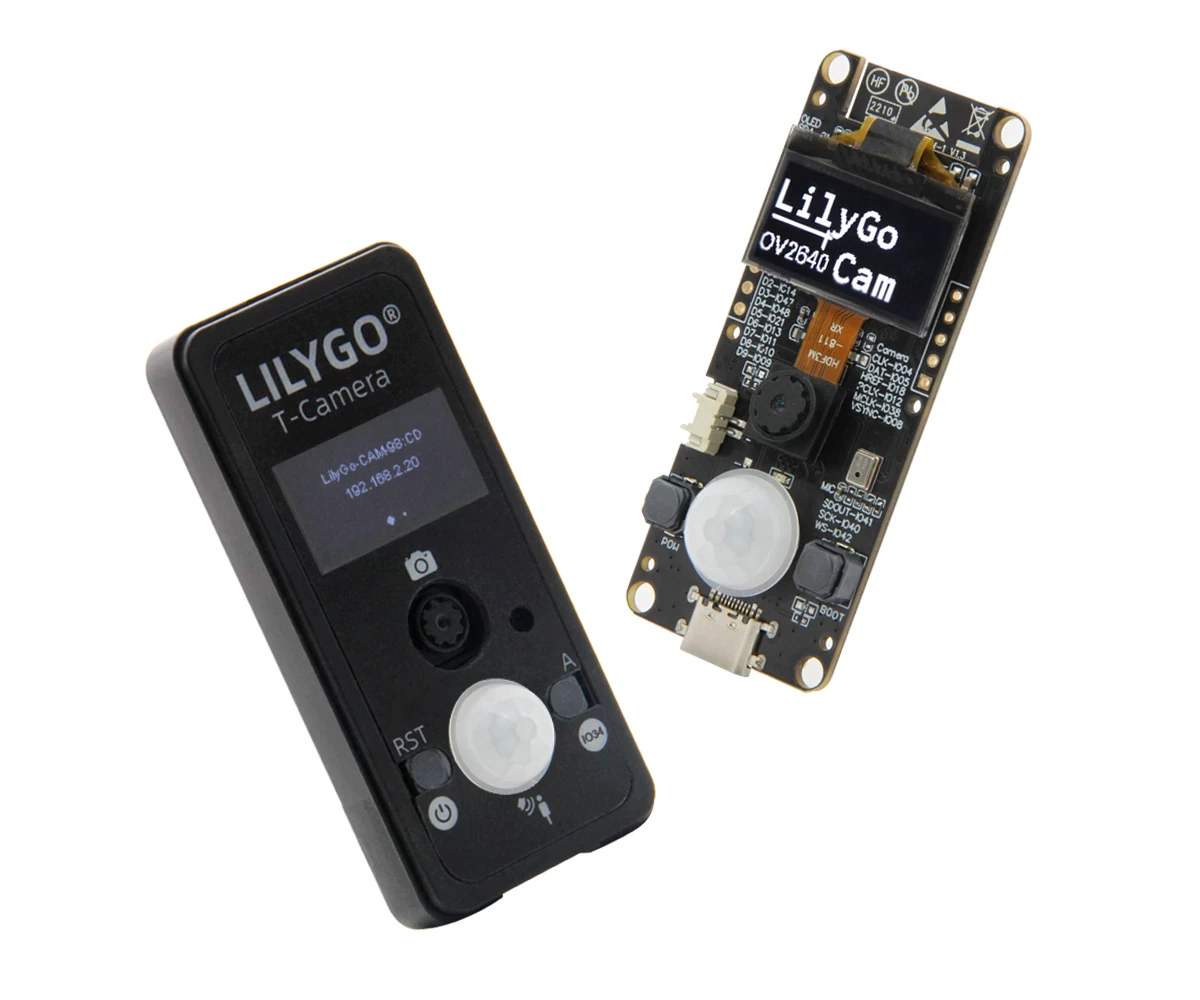James Brown (aka Ancient) has built a tiny computer inside a LEGO brick with a Raspberry Pi RP2040 microcontroller and a 0.42-inch OLED display. And yes, it runs Doom. So finally, the LEGO minifigures have access to a computer suitable for their size :). James did not post a lot of information to reproduce the build by yourself, but he still released the “uGrey” code, written in Micropython, to display greyscale on a monochrome OLED. We can learn from the design in a mesmerizing video (embedded at the end of this post) showing how he made a Raspberry Pi RP2040 computer fit into a LEGO brick. The tiny design is comprised of five main boards/modules: Raspberry Pi RP2040 module The micro USB module Two side modules with other components A 0.42-inch OLED display with 72×40 resolution (SSD1306) Since soldering the four modules together by hand only would be really challenging, […]
Meadow F7v2 Feather STM32F7 MCU board supports .NET, C# programing
Wilderness Labs Meadow F7v2 Feather is an STM32F7 Arm Cortex-M7 development board following the Adafruit Feather form factor and programmable with C# through a lightweight implementation of the .NET framework. We had previously seen the .NET Framework running on Android and Linux thanks to Xamarin’s Mono, but I don’t think I had ever a microcontroller-class board supporting the .NET framework and C# programming. But that’s exactly what the Meadow F7v2 Feather does. Meadow F7v2 Feather specifications: MCU – STMicro STM32F7 Arm Cortex-M7 microcontroller @ 216 MHz with 2D graphics and JPEG accelerators Memory – 32MB RAM Storage – 64MB flash Connectivity – 2.4 GHz WiFi and BLE (ESP32) with onboard and external u.FL antennas USB – 1x Micro USB port for power and programming Expansion with through and castellated holes with up to 25x GPIO, 12x PWM, 6x analog inputs, 2x DAC, I2C, I2S input/output, SPI, UART, CAN Bus Misc […]
DROPLET irrigation system works with ESPhome and Home assistant
When PricelessToolkit failed to find an affordable (indoor) irrigation system that works with Home Assistant and ESPHome, he built the DROPLET board based on ESP32 wireless SoC and supporting up to five micro-pumps and soil moisture sensors. The board also comes with switches to manually control the pump, a built-in DS18B20 temperature sensor, a buzzer, and a I/O header to connect an expansion header for relay control, I2C, GPIOs, and an external DS18B20 temperature sensor. DROPLET specifications: Wireless module – ESP32-S with ESP32 dual-core 32-bit microcontroller @ 240 MHz with 2.4 GHz WiFi and Bluetooth connectivity, 4MB SPI flash Display – I2C header for 5V/3.3V OLED display Pump interfaces – 5x 2-pin connectors for micropumps Sensors and sensor interfaces DS18B20 temperature sensor 5x 3-pin connectors for soil moisture sensors; pulled low with a 1 MΩ resistor. Expansion – 2x 16-pin right-angle female header with GPIOs, UART, 5V, and GND Debugging […]
Banana BPI-Bit-S2 BBC Micro:bit compatible board supports WiFi
Banana BPI-Bit-S2 is a board for the education market that’s compatible with the BBC Micro:bit V2, but offers WiFi connectivity instead of Bluetooth LE through an Espressif Systems ESP32-S2 wireless microcontroller. The BPI-Bit-S2 succeeds the earlier Banana Pi BPI-Bit with ESP32 WiFi & BLE microcontroller that was a closer match to the original BBC Micro:bit than the new ESP32-S2 board for which I see little benefit, except for the slightly lower price tag. Banana BPI-Bit-S2 specifications: Wireless MCU – Espressif Systems ESP32-S2FN4R2 single core LX7 microcontroller with 320 kB SRAM, 2MB PSRAM, 4MB flash, 2.4 GHz WiFi connectivity LEDs – 25x RGB LED matrix USB – 1x USB Type-C port for power and programming Sensors – 2x light sensors, 1x thermistor sensor Expansion – 3x I/O rings, 3V/GND rings, 20-pin edge connector (compatible with BBC Micro:bit V2 design) with up to 16x GPIO, I2C, SPI, 3.3V, and GND Misc – […]
Qualcomm QCX216 LTE Cat1 bis IoT-optimized modem integrates WiFi-based terrestrial positioning
Qualcomm QCX216 is a new IoT-optimized LTE Cat1 bis modem with a data rate of up to 10 Mbps at ultra-low power and support for WiFi-based terrestrial positioning thanks to the company’s database of billions of geolocated beacons. LTE Cat1 bis is an update to LTE Cat1 that does not require software and hardware upgrades to the base stations, enables smaller, simpler, and cheaper designs with a single antenna, and delivers higher speeds than LTE Cat M1 typically used in IoT applications. Qualcomm QCX216 LTE IoT modem will be used in smart utility meters, trackers, e-mobility solutions, parking meters, home automation and security equipment, and other location-based solutions. Qualcomm QCX216 specifications: SoC – Qualcomm 216 LTE IoT modem with dual-core Cortex-M3 @ 204 MHz, cellular modem-RF Wireless Cellular Peak Download Speed: 10 Mbps Peak Upload Speed: 5 Mbps Cellular Technology: Rel.14 LTE, Global LTE Cat 1bis Multi SIM: Dual SIM/eSIM […]
EdgeBox-ESP-100 – An ESP32-S3 industrial controller with RS485, CAN Bus, DIO, 4G LTE, and more
We’ve previously covered the EdgeBox-RPi4 industrial controller powered by a Raspberry Pi Compute Module 4 and plenty of I/Os such as RS485, RS232, digital inputs and outputs, and connectivity options such as Gigabit Ethernet, WiFi 5, Bluetooth 5, and 4G LTE. But if you don’t quite need the power of a Linux controller, the EdgeBox-ESP-100 industrial edge controller based on an ESP32-S3 dual-core WiFi and Bluetooth microcontroller and offering a similar set of features, albeit with twists, may be an interesting option. EdgeBox-ESP-100 specifications: Microcontroller – Espressif Systems ESP32-S3 dual-core Tensilica LX7 microcontroller @ 240 MHz with AI vector instructions, 512KB RAM Memory – 8MB PSRAM Storage – 16MB Flash Network connectivity 10/100M Ethernet RJ45 port 2.4 GHz WiFi 4 and Bluetooth 5.0 LE via ESP32-S3 4G LTE cellular via SIMCom A7670G LTE Cat 1 module Optional support for LoRa (replaces the A7670G module) Serial & I/Os via terminal blocks […]
ArduCam Mega – A 3MP or 5MP SPI camera for microcontrollers (Crowdfunding)
ArduCam Mega is a 3MP or 5MP camera specifically designed for microcontrollers with an SPI interface, and the SDK currently supports Arduino UNO and Mega2560 boards, ESP32/ESP8266 boards, Raspberry Pi Pico and other boards based on RP2040 MCU, BBC Micro:bit V2, as well as STM32 and MSP430 platform. Both cameras share many of the same specifications including their size, but the 3MP model is a fixed-focus camera, while the 5MP variant supports autofocus. Potential applications include assets monitoring, wildfire monitoring, remote meter reading, TinyML applications, and so on. ArduCam Mega specifications: Camera Type 3MP with fixed focus 5MP with auto-focus from 8cm to infinity Optical size – 1/4-inch Shutter type – Rolling Focal ratio 3MP – F2.8 5MP – F2.0 Still Resolutions 320×240, 640×480, 1280×720 x 1600 x1200x 1920 x 1080 3MP – 2048 x 1536 5MP – 2592×1944 Output formats – RGB, YUV, or JPEG Wake-up time 3MP – […]
T-Camera S3 – An ESP32-S3 board with camera, display, PIR motion sensor, and microphone
LilyGO has launched a new ESP32-S3 WiFi & BLE camera board with the T-Camera S3 also featuring a small display, a PIR motion sensor, and a microphone, as well as an optional plastic shell. The T-Camera S3 is an evolution of the TTGO T-Camera ESP32 board introduced in 2019 with many of the same features, but the ESP32 microcontroller has been replaced with an ESP32-S3 microcontroller with vector extensions that makes it suitable for machine learning and computer vision applications. The new board also comes with a larger 16 MB SPI flash, more I/Os, and a few other small changes. T-Camera S3 specifications: ESP32-S3-WROOM-1 wireless module SoC – ESP32-S3FN16R8 dual-core Tensilica LX7 microcontroller @ 240 MHz (Note: this SKU is not listed in the official ESP32-S3 datasheet) with 2.4 GHz 802.11n WiFI 4 and Bluetooth 5.0 LE connectivity Memory – 8MB PSRAM Storage – 16MB SPI flash Camera – 2MP […]


